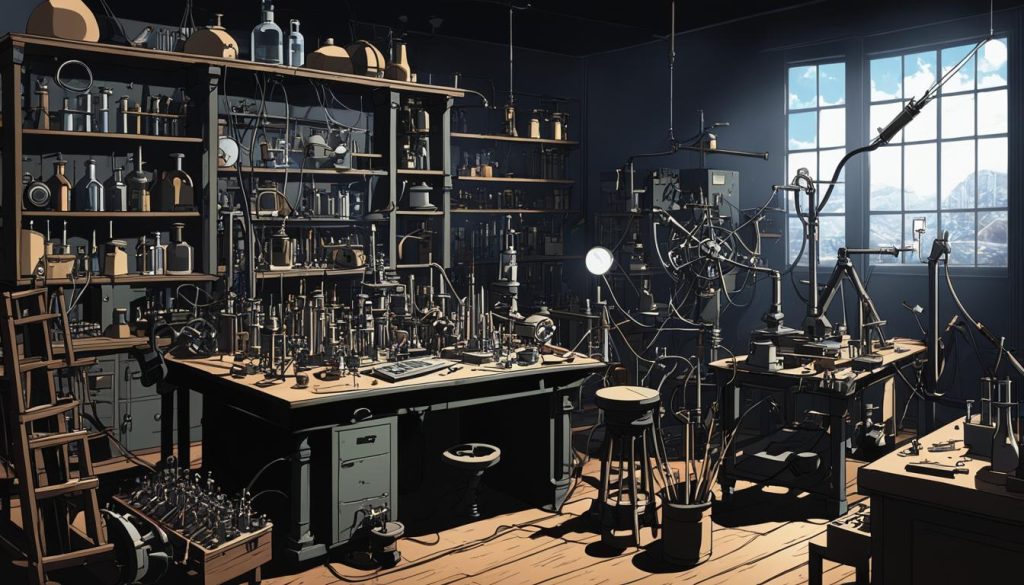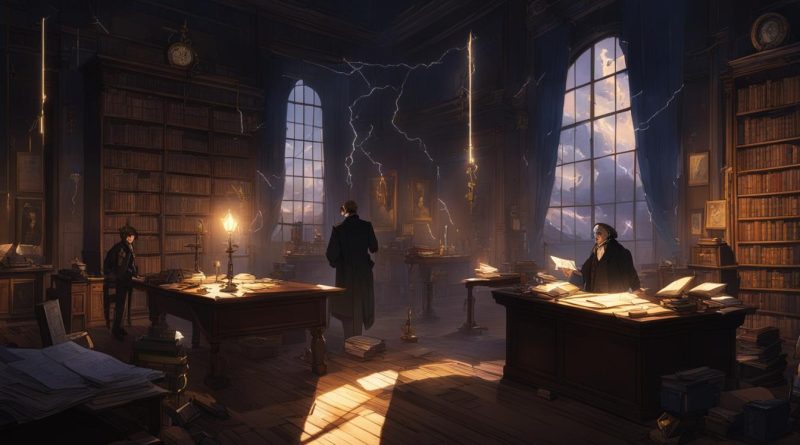Discovery of Electricity: A Historical Insight
Electricity is an essential part of our daily lives, providing us with light, heat, power, and communication. But have you ever wondered about its origins and how it came to be so crucial in modern society? In this article, we will delve into the history of electricity, exploring key questions such as “when was electricity invented?” and “who discovered electricity?” We will take a comprehensive look at the important milestones in electricity invention, from the early discoveries to the present-day scenario.
Key Takeaways:
- Electricity has come a long way since its discovery, shaping the modern world we know today.
- The timeline of electricity invention is marked with significant milestones throughout history.
- Early pioneers such as Benjamin Franklin, Alessandro Volta, and Michael Faraday played a critical role in shaping the understanding of electricity.
- Electricity is an essential component of modern society, powering everything from homes to industries and communication systems.
- The history of electricity is an ongoing journey, and new innovations continue to shape the way we harness and utilise it.
The Early Pioneers and Discoveries
Electricity was not discovered overnight. It took years of experimentation, observation, and persistence by pioneers in the field. What started as a curiosity became a field of study that forever changed the way we live our lives. This section will explore the early pioneers and their groundbreaking discoveries that revolutionized the field of electricity and paved the way for future advancements.
One such pioneer was Benjamin Franklin, who is widely known for his famous kite experiment. His work with lightning proved that electricity could be harnessed and tamed, paving the way for future discoveries. Alessandro Volta’s invention of the battery was another significant milestone in the history of electricity, and it marked the first time that electricity could be stored and used as a source of power. Michael Faraday is also known for his contributions, specifically his work with electromagnetism. His experiments led to the discovery of electromagnetic induction and the development of electric motors.
Table: Breakthroughs in Electricity
| Discovery | Pioneer | Impact on Electricity |
|---|---|---|
| Static Electricity | William Gilbert | Proved that electricity existed in nature and could be studied and harnessed. |
| Kite Experiment | Benjamin Franklin | Discovered that lightning was a form of electrical discharge and that electricity could be harnessed. |
| Battery | Alessandro Volta | Allowed for the storage and use of electricity as a source of power. |
| Electromagnetism | Michael Faraday | Discovered electromagnetic induction and the concept of electric motors. |
The above table showcases some of the significant breakthroughs in the field of electricity and the pioneers responsible for them. These discoveries revolutionized the way we think about and use electricity, and it opened the door for future advancements that continue to transform modern society.
As we move forward, it’s important to remember the early pioneers and their contributions to the field of electricity. Without their groundbreaking discoveries, the modern world as we know it would not exist.

Conclusion
The history of electricity is a remarkable journey that spans over centuries and involves the tireless efforts of numerous brilliant minds. From the initial discovery of electricity to the development of complex electrical systems, the timeline of electricity invention showcases an impressive progression of human ingenuity and determination.
Today, electricity plays a vital role in modern society, powering countless devices and technologies that have revolutionized our way of life. The electricity timeline highlights the significant contributions of early pioneers, such as Benjamin Franklin, Alessandro Volta, and Michael Faraday, whose innovative discoveries paved the way for future advancements.
As we continue to explore the ever-evolving world of electricity, it is crucial to appreciate the timeline of electricity invention and the remarkable progress made in this field. We owe a debt of gratitude to those who have contributed to this incredible journey, and we must continue to push the boundaries of electrical innovation for the betterment of society.
FAQ
When was electricity invented?
Electricity was not invented, but rather discovered. The concept of electricity dates back to ancient times, but significant advancements and understanding of electricity began in the 18th century.
What is the history of electricity?
The history of electricity spans several centuries. It began with the ancient Greeks’ observations of static electricity and progressed through the scientific experiments of figures like William Gilbert and Benjamin Franklin. The Industrial Revolution brought widespread use of electricity, leading to the development of electric power systems and the invention of various electrical appliances.
Who discovered electricity?
While many individuals made contributions to the understanding of electricity, Benjamin Franklin is often credited with discovering electricity through his famous kite experiment in 1752. However, it is important to note that this experiment did not invent electricity but rather demonstrated the connection between lightning and electricity.
What were some important milestones in electricity invention?
Some important milestones in the invention of electricity include Alessandro Volta’s invention of the battery in 1800, Michael Faraday’s experiments with electromagnetism in the 19th century, and Thomas Edison’s development of practical electric lighting in the late 1800s. These breakthroughs laid the foundation for the electrical advancements we enjoy today.
What were some breakthroughs in electricity?
Several breakthroughs shaped the understanding and application of electricity. Some notable breakthroughs include the invention of the electric motor by Michael Faraday, the development of alternating current (AC) by Nikola Tesla, the creation of the first practical incandescent light bulb by Thomas Edison, and the discovery of the electron by J.J. Thomson. These breakthroughs revolutionized industries and transformed the way we live.
What is the timeline of electricity invention?
The timeline of electricity invention spans centuries, starting with ancient Greek observations of static electricity in 600 BC. In 1600, William Gilbert introduced the term “electricity,” and Benjamin Franklin conducted his famous kite experiment in 1752. The 19th century saw significant advancements, such as Alessandro Volta’s invention of the battery in 1800 and Thomas Edison’s development of practical electric lighting in the late 1800s. The 20th century brought further breakthroughs, including the development of alternating current (AC) and electronics.
What is the significance of electricity in modern society?
Electricity is of paramount importance in modern society. It powers our homes, offices, and industries, enabling us to operate electrical appliances, communicate through electronic devices, and enjoy various forms of entertainment. Electricity has revolutionized transportation, medicine, and countless other sectors, improving our quality of life and driving technological advancements.
How has electricity impacted various aspects of our lives?
Electricity has had a profound impact on various aspects of our lives. It has transformed our living spaces with electric lighting, heating, and cooling systems. It has revolutionized communication through telephones, computers, and the internet. It has enabled advances in healthcare with medical imaging, surgical equipment, and life-saving devices. Furthermore, electricity has been instrumental in transportation, powering electric vehicles and facilitating efficient mass transit systems.




